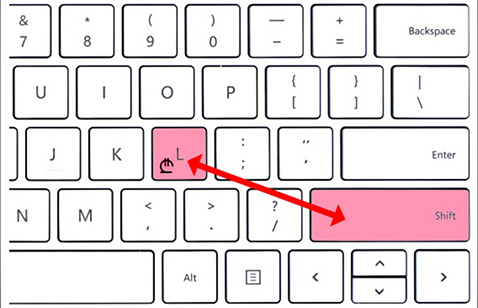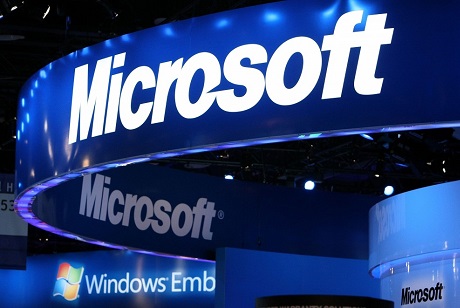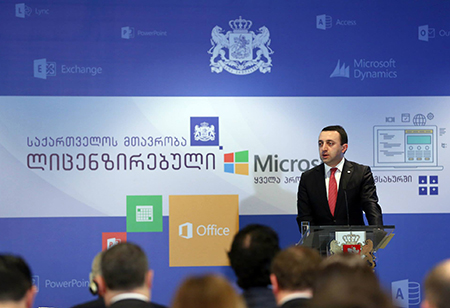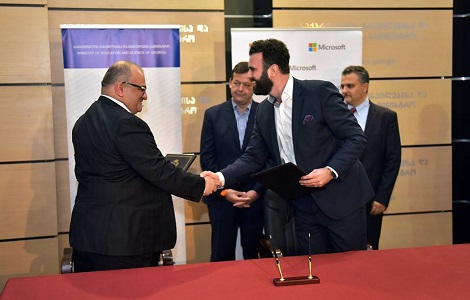Microsoft signs deal with 7 Georgian retailers against pirated software
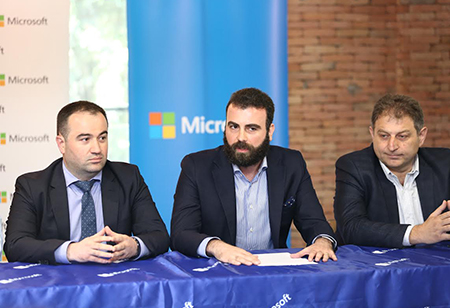
American multinational technology giant Microsoft is taking actions to protect Georgian computer buyers from cyber threats and risks posed by fraudulent software.
In Georgia’s capital Tbilisi yesterday Microsoft signed a Memorandum of mutual Understanding (MoU) with leading Georgian retailers to stamp out the use of illegal or pirated Microsoft software.
In the past year the number of people using unlicensed computer software had dropped but as the practice was not regulated, a huge number of people still used fraudulent Microsoft products.
However with this new MoU, Microsoft has authorised seven Georgian computer retailers the right to sell legitimate, licensed Microsoft products.
The seven stores that signed the MoU with Microsoft were: Alta Okay, Smile, MetroMart, Elite Electronics, Aray Tomorrow, PC Shop and CompShop.
Such initiatives indicate a civilised market. Our company builds business using a legal base. We perfectly understand all the risks that customers face while purchasing illegitimate programs at low prices, or install fake programs,” said the general director of Alta Okey Kakha Tchovelidze.
We are more than happy to see Microsoft is contributing to developing the Georgian market. It protects not only itself but its customers here,” he added.
In recent years Georgia aimed to transform its information technology (IT) sector and stamp out the illegal use of pirated Microsoft products.
Last year Georgia and Microsoft signed a special agreement to give the country access to legitimate licensed Microsoft products as a first step to eliminating the use of illegally pirated software in the country.
After signing the agreement with Microsoft the former Prime Minister Irakli Garibashvili said Georgia would be the first post-Soviet country to have legal and licensed Microsoft programs.
Since the first deal was signed last year the use of unlicensed Microsoft software programs in Georgia has decreased six percent, said head of Microsoft’s representation to Georgia Nikoloz Doborjginidze.
He noted illegal use of Microsoft products had reduced from 90 percent to 84 percent but it remained very high.
 Tweet
Tweet  Share
Share
